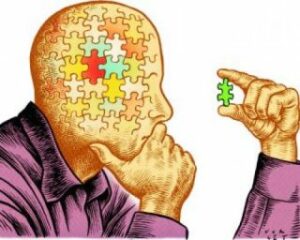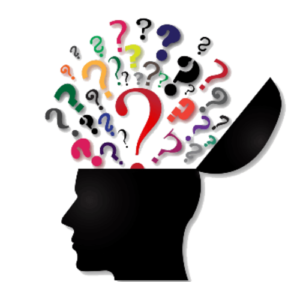Self-psychology is a relatively new branch of psychology that focuses on the individual. It takes into account the individual’s experiences, relationships, and inner world in order to understand their behavior. Self-psychology was developed in response to traditional psychoanalysis, which tended to focus on the patient’s past rather than their present state. This approach has been met with criticism by some, but it continues to be popular among many psychologists and patients alike.
Contents
What Is Self-Psychology?
 Self-psychology is a subfield of psychology that emphasizes the study of the self. It was founded in the 1970s by Heinz Kohut, a German-born psychiatrist who emigrated to the United States. Self-psychology has its roots in psychoanalysis, but it departs from traditional psychoanalysis in several important ways.
Self-psychology is a subfield of psychology that emphasizes the study of the self. It was founded in the 1970s by Heinz Kohut, a German-born psychiatrist who emigrated to the United States. Self-psychology has its roots in psychoanalysis, but it departs from traditional psychoanalysis in several important ways.
This psychology is also called “self-psy” or “psychology of the self.” It is a theory of psychology that began in the 1970s.
Self-psychology has its roots in psychoanalysis, but it differs from traditional psychoanalysis in several important ways. This theory was founded by Heinz Kohut, a German-born psychiatrist who later moved to the United States.
The concept of self-psychology is based on the idea that we all have a “self” that needs to be fulfilled. This “self” is our true identity, and it is separate from our ego or false self. The goal of self-psychology is to help us develop our true selves so that we can lead more fulfilling lives.
Self-psychology emphasizes empathy, which is the ability to understand and share the feelings of another person. According to Kohut, empathy is essential for providing effective psychological treatment. He believed that traditional psychoanalysis lacked empathy and was too focused on interpretation.
Concepts of Self-Psychology
The concepts of self-psychology were originally developed by Heinz Kohut in the 1970s as a way to think about and treat patients with certain types of mental disorders. Self-psychology has since evolved into a full-fledged psychological theory with its own unique set of concepts and ideas.
One of the fundamental concepts of self-psychology is that humans have an innate need for self-esteem and self-respect. This need is often called the “self-object needs.” According to Kohut, when these needs are not met, it can lead to various mental disorders.
Another important concept in self-psychology is the idea of “transmuting internalization.” This refers to the process by which we take in and internalize the positive qualities of people who are important to us. This helps us to develop a positive sense of self-esteem and self-respect.
Yet another key concept is the “self-object,” which refers to anything that we use to help meet our self-object needs. These can be things like our relationships with other people, our work, or our hobbies.
Self-psychology has had a significant impact on the field of psychology and has helped to shape the way we think about mental disorders. If you’re interested in learning more about this theory, there are many resources available online and in libraries.
Benefits of Self-Psychology
 There can be many benefits of self-psychology. One benefit is that individuals can learn to trust themselves more and become more autonomous. Another benefit is that self-psychology can help people to become more aware of their own feelings and needs, as well as the feelings and needs of others. Additionally, self-psychology can assist people in developing better relationships with others. Finally, self-psychology may also help people to cope with difficult life events in a more healthy and adaptive way.
There can be many benefits of self-psychology. One benefit is that individuals can learn to trust themselves more and become more autonomous. Another benefit is that self-psychology can help people to become more aware of their own feelings and needs, as well as the feelings and needs of others. Additionally, self-psychology can assist people in developing better relationships with others. Finally, self-psychology may also help people to cope with difficult life events in a more healthy and adaptive way.
Overall, self-psychology can be a very helpful tool for individuals to use in order to improve their lives.
Limitations of Self-Psychology
There are many benefits as well as drawbacks to this concept:
One of the main limitations is that it can be quite difficult to apply in practice. This is because self-psychology requires a great deal of introspection and insight into one’s own motivations and emotions.
In addition, this can be quite challenging to understand and may require professional help to fully grasp its concepts. These can also make a self-psychologist seem like they are judging or criticizing their patients.
At its core, it is based on the belief that we are all capable of change and growth. However, this may not be realistic for some people who have experienced trauma or abuse.
Finally, it may not be appropriate for everyone, as some people may find it too psychological or egotistical. Despite these limitations, self-psychology remains a useful tool for understanding oneself and others.
It is also important to note that self-psychology is still a relatively new field and as such, more research is needed to further validate its efficacy. Nevertheless, self-psychology offers a unique and insightful perspective that can be helpful for many people seeking personal growth and healing.
Conclusion
Seld-psychology is a theoretical orientation that has its roots in ego psychology. It has been expanded and elaborated upon to include concepts such as empathy, introspection, and self-observation. Self-psychologists believe that the development of the self is a lifelong process that begins in infancy and continues throughout adulthood.
The focus of self-psychology is on the individual’s experience of him or herself within the context of relationships with others. In other words, self-psychologists are interested in how we see ourselves through the eyes of others and how our early relationships shape our sense of self.
Wanna know more about self-psychology and other-related concepts? Contact us as we have experts in psychology who can give you more in-depth insights.
A Word From Therapy Mantra
Your mental health — Your psychological, emotional, and social well-being — has an impact on every aspect of your life. Positive mental health essentially allows you to effectively deal with life’s everyday challenges.
At TherapyMantra, we have a team of therapists who provide affordable online therapy to assist you with issues such as depression, anxiety, stress, workplace Issues, addiction, relationship, OCD, LGBTQ, and PTSD. You can book a free therapy or download our free Android or iOS app.


